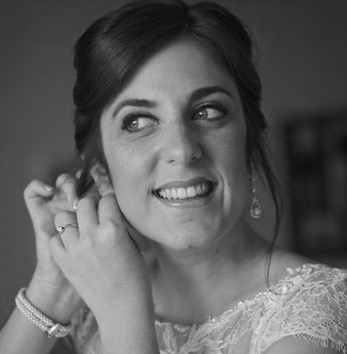Rosh Hashana, my favorite holiday! It is a time of relaxation, listening to classic holiday songs on the radio, enjoying beautiful weather and spending quality family time. The only question is, what family? This complicated political question has been in peoples’ minds for centuries, ever since marriage was carefully and intelligently arranged. Although there are major differences between then and now, the strategic decision of “which family to choose” is still a big part of any family's day-to-day life.
Every holiday, my parents must choose which house we will visit for the holiday dinner. These seconds, right before their mouths open to determine our fate for the evening, always seem to last forever, as each path takes us on a drastically different journey. On my father's side, we have Iraqi native parents, two Israeli sisters with deep Iraqi roots and all of their families, too. On my mother's side, we have an Israeli born mother with very very very deep Polish roots, and Israeli brother and sister with the same deeply ingrained roots, and all of their families. Two sides of the family, and two very different worlds.
This annual Rosh Hashannah dinner announcement must be made relatively early, for we must be Ashkenazi or Sephardic oriented from the start. First of all – there is wearing the proper attire. For both sides, we must wear something rather loose, to make space for…expanding during the rich dinner that awaits us. My Iraqi side is more religious, and there is an expectation for formal attire, with preference for bright colors (which will probably be returned home with a nice, visible stain after the feast!). My Polish side is quite the opposite, which means the outfit must lean towards more comfortable, business-casual.
Because of these religious and cultural differences, the proper stomach preparations for the pre-dinner part must also be taken in advance. It is a simple mathematic calculation: we must eat enough food in advance so that we stay focused and relaxed during the pre-dinner ceremony. On the day of a big dinner, we usually try to avoid eating, unless it is necessary. However, as dinnertime approaches, we lose patience, and become anxious as our mouths begin to water as the smell of food catches our attention.
My Iraqi family’s dinner usually starts about an hour and a half after we arrive, which means I usually eat a small meal before leaving home. First, we say “hello.” We hug, we kiss and we wait for my aunt's family to arrive, late as usual. Then, we stand around the table as my grandfather leads the Rosh Hashannah Seder. He does not skip a word, and we all must have at least a taste of all of the holiday's traditional foods, including dates, fish head, Lubia bean, beets, leek, Pomegranate and apples dipped in honey.
Then my grandfather makes a speech, congratulating each and every one of us for our achievements in the past year. He then reviews his year, and only after that, can we start eating my grandmother's delicious food. The meal includes Couscous, Kuba, Iraqi rice, and Tbit. We barely talk during dinner, because our mouths are too busy chewing. After dinner we rest, just until we have enough room for dessert, and then we rest some more. After we're done resting, my father takes out his guitar and we all sing together.
My Polish-Ashkenazi dinner begins about 20 minutes after our arrival, which means no pre-dinner meal is needed. We don't really need to say “hello” or catch up, since we all live next to each other, in the same small town. This, however, does not stop me from being bombarded with traditional Polish questions from every corner. Much of the interrogation relates to when I will get married and to reminders that at my age, my grandmother already had two children, and my aunt and uncle were already married to their spouses.
After this little ceremony is over, my father usually throws a symbolic ten minute Seder, including apples dipped in honey, a pomegranate and a drawing of the head of a fish (most of the family members on this side cannot stand fish.) Then, everyone digs in, enjoying Chicken and vegetable soup, Kneidlach, Gefilte Fish (for the few of us who eat fish,) potatoes, salads and beef. In between bites, we catch up on the latest gossip, and I’m asked again, just in case, if my boyfriend and I are getting married soon and if my brother wants to meet my aunt's sister's neighbor's daughter.
Then, we move to the living room where each of us spreads out on the couch or on the carpet, and we rest from the tiring exercise of eating a large dinner. After we're done resting, my father takes out his guitar and we all sing together, because no dinner is complete without my father's sing-along hour of fun!
Both sides of the family are completely different. Both sides are different types of fun. Which one will I enjoy this year? Only time (and inter-family politics) will tell.























 More news and opinions than at a Shabbat dinner, right in your inbox.
More news and opinions than at a Shabbat dinner, right in your inbox.